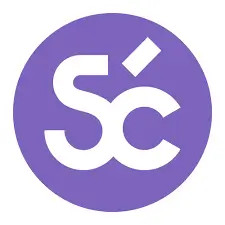In 2022, Québec, a Canadian province known for its distinct culture and language, made headlines with the introduction of Bill 96. This legislation, officially titled “ An Act respecting French, the official and common language of Québec”, has significant implications not only for the residents of Québec but also for businesses operating within the province. As companies strive to ensure compliance and navigate the complexities of operating in a bilingual environment, understanding the nuances of Bill 96 is paramount for any business that wants to run their business in Québec. In this article, we'll explain the bill as well as provide instructions on how to effectively localize your content into French Canadian.
Bill 96 summary
Bill 96 is a legislative initiative aimed at reinforcing the status of French as the official language of Québec. It seeks to strengthen the use of French in various aspects of daily life, including government, education, and business. At its core, the bill emphasizes the importance of preserving and promoting the French language within the province.
Bill 96 requirements
Under Bill 96, businesses operating in Québec are subject to certain requirements aimed at promoting the use of French in their operations. While the specifics of these requirements may vary depending on the nature and size of the business, they generally include:
Language of the workplace
Employers are obligated to ensure that French is the primary language of communication in the workplace. This applies to all aspects of employment, including meetings, emails, job postings, and written communications.
Customer service and advertising
Businesses must provide services in French to their customers, including product information, package labels, signage, and customer support. When it comes to advertising and labeling, French must be the most prominent language displayed. This ensures that French-speaking consumers have access to essential services in their language.
Documentation
All official documents, such as contracts, invoices, and employee manuals, must be available in French. This requirement ensures that French-speaking individuals can fully understand and engage with the content.
Public signs
Public signage, including storefronts and advertisements, must prioritize French.
Failure to comply with requirements can lead to fines by the “The Office québécois de la langue française” (“OQLF”), the body responsible for enforcement.
Who does Bill 96 apply to?
Bill 96 applies to all businesses operating within the province of Québec, regardless of their size or industry. Whether a multinational corporation or a local startup, any entity conducting business in Québec must adhere to the provisions outlined in the legislation.
In addition, businesses employing 25 or more employees in Québec are subject to further measures. They must follow a process of ‘francisation’, which includes forming committees to audit the level of French use throughout the company.
When does Bill 96 take effect?
The majority of Bill 96 clauses are already in effect. However, businesses should be aware of an upcoming important deadline.
By June 1, 2025, businesses operating in Québec must:
Make sure that their common law trademarks and product descriptions on packaging and labeling are in French.
Ensure that the (already mandatory) French language on public signage and advertising is given prominence in terms of size, visibility, and legibility compared to other languages.
Do websites in Canada need to have a French version?
One common question that arises in the context of Bill 96 is whether websites targeting Canadian audiences need to have a French version. If you’re a non-Canadian entity but want to communicate with customers in Québec , do you need a French translation of everything? Don’t panic—the legislation does not explicitly require this. However, having a French version of a website can demonstrate a commitment to linguistic diversity and enhance accessibility for French-speaking users.
Moreover, providing content in French can help businesses reach a broader audience within Québec and comply with the spirit of the legislation. By offering a French-language option, companies can better engage with French-speaking consumers and foster a sense of inclusivity.
Engaging with a target audience in their native language and with respect for their culture is what localization is all about. And it’s a good idea for any business looking to find success in the French Canadian market. Whether you’re looking to comply with Québec language legislation or simply connect with Québecois customers, translation makes good business sense.
What can I do to comply with Québec's Bill 96?
The best move would be to get high-quality translations of your documents and any marketing or customer service materials that target Québec residents. That sounds like a lot of work—and money—but it doesn’t have to be. By combining modern AI translation tools with human language experts, businesses can streamline the translation process and ensure high-quality results.
For businesses seeking to comply with Québec's language requirements and translate their materials into French, Smartcat offers an efficient and cost-effective solution.
With Smartcat, you can:
Quickly translate your web content with AI
Smartcat AI translation leverages advanced algorithms to translate web content (landing pages, blogs, ads, and so on) in just a few seconds. Smartcat learns the more you use it, picking up on your brand’s voice and preferences. This makes every translation faster and higher quality.
Streamline the translation process with Smartcat Editor
This initial draft can then be refined and perfected by human translators, ensuring a nuanced and accurate translation that resonates with French-speaking audiences. Smartcat's intuitive Editor (take our Smartcat Academy course on Smartcat Editor) allows translators to collaborate in real time and provides built-in assistance with glossary integration and quality assurance checks. Businesses can leverage Smartcat Editor to oversee the translation process, track progress, and provide feedback to translators. This ensures that the final output meets your expectations and aligns with the desired messaging and tone.
Source experienced French Canadian linguists in seconds
What if you don’t have experts in Québecois French in your company? Remember, it’s not exactly the same as European French. Finding, connecting with, and negotiating with translators can be time-consuming and expensive, but Smartcat makes it easy. Smartcat Marketplace connects businesses with vetted and experienced Canadian French translators who understand the local culture. You can filter by budget and particular requirements to make sure you find the right talent to meet your specific needs.
Are most people in Québec bilingual or speak only French?
While Québec's Bill 96 aims to “affirm that the only official language of Québec is French”, linguistic proficiency varies among residents. Many Québecois are bilingual in both French and English, but a significant portion of the population primarily speaks French.
French remains the dominant language in Québec, particularly in cultural, political, and business spheres. As such, businesses operating in the province must prioritize French-language communication to effectively engage with the local population and comply with legal requirements such as Bill 96.
Note that it has always been good business practice to use French when marketing to Québec—it’s just an even better idea now that the local authorities have decided to reinforce the dominance of French in the region with these laws.
Did Québec's language protection laws fail?
Bill 96 isn’t the first legislation passed to protect French in Québec. Previous legislation, such as Bill 101, also aimed to safeguard the status of French within the province. However, some argued that it did not go far enough in addressing linguistic concerns and combating the influence of globalization.
Bill 96 represents a renewed commitment to strengthening the position of French in Québec and ensuring its prominence in various domains. By implementing stricter requirements for businesses and reinforcing the use of French in public life, the legislation seeks to address perceived shortcomings in previous language protection efforts.
Translate for success in Québec
Bill 96 represents a significant development in Québec's language policy landscape, with far-reaching implications for businesses operating within the province. By understanding the requirements outlined in the legislation and prioritizing French-language communication, companies can ensure compliance and foster meaningful engagement with the local community.
The key takeaway here is that the language law underlines Québec’s commitment to upholding its linguistic heritage. Connect with your French Canadian audience via quality translations avec élan with Smartcat and celebrate this heritage with them!


